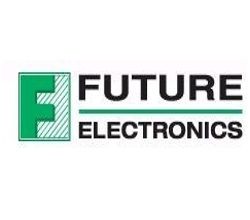British consumers could save £1.4 billion annually, 17 megatons of CO2 emissions and avoid the addition of 23 power plants by the year 2020 through effective demand response and smart
metering programmes.
Research published by VaasaETT and partners2 shows that the implementation of demand response3
and smart metering across Britain, backed by appropriate regulatory structures, could effectively alleviate the ongoing “Energy Crisis”, achieve drastic cuts in CO2 emissions, making the implementation of
renewable energy generation a far more realistic prospect while saving consumers4 over a billion pounds
per year in overall energy spending.
Other Findings of the research include:
o Smart meters without a well-coordinated demand response strategy will lead to hundreds of millions of pounds of wasted investment.
o Successful British and European demand response will not happen without a complete re-
think of the way consumers pay for their energy, and a much more thorough understanding of customer psychology and marketing issues behind demand response behaviour.
o The Utilities industry alone cannot be expected to provide all the components in the demand response Jigsaw. Consumer electronics, telecoms, internet and other in-home service providers will need to be encouraged to enter the market for home automation.
Dr Philip Lewis, of VaasaETT argues, “The current regulation and requirements for smart meters which are being debated by the government will not allow or encourage a wide range of demand response programmes, thereby denying the public and the country their potential benefits. There is therefore a
need to add to the public debate and raise awareness about the issues and the possibilities which may be won – or lost.”
Jessica Stromback of VaasaETT further states, “Smart meters rollout represents a unique opportunity for British government and utilities to help the British public save billions of pounds while at the same time benefitting the environment. Smart meters are being “sold” as energy saving devices, there is therefore a
responsibility to use them effectively”
1
This includes commercial and residential customers
2
“Demand Response, A decisive breakthrough for Europe” VaasaETT, Capgemini, Enerdata. 2008
3 Put simply, demand response is a collective name for programmes, which make customers aware of their electricity consumption
and enables or motivates them to reduce or shift consumption. This can be done through a variety of means such as: automated thermostats, pricing signals, in-house displays, clear, informative billing and eco home technologies.
4
This includes residential and commercial customers
For further information contact:
Andy White, Marketing Manager VaasaETT Global Energy Think Tank Andy.white@vaasaett.com
Tel +44 (0) 871 315 7334 / Fax +44 (0) 871 315 7335
www.vaasaett.com
The VaasaETT Global Energy Think-Tank is an innovative provider of collaborative expertise
and solutions to the energy and utilities industry, through its network of senior executives, officials, researchers and other experts that are mostly known and trusted personally. Value is provided to partners through the synergy of Interactive Forums (both real and virtual) and Collaborative Projects.
The Think-Tank focuses broadly on strategic business, market, innovation and regulatory issues, and is world renowned for its expertise in fields such as Customer Psychology & Behaviour, Smart Metering and Demand Response.
VaasaETT’s core team of specialists have provided assistance to more than 300 organizations
in around 50 countries; client references include Shell International, E.ON, ERGEG (European Regulators Group for Electricity and Gas), EDF, Nokia, ABB, Electrabel, RAO, Fortum, ENECO Energie, NUON GmbH, Brittish Gas, Union Fenosa, RWE, Duke Energy, BC Hydro Canada, CRIEPI Japan, Npower etc.








I must say this is a great article i enjoyed reading it keep the good work 🙂